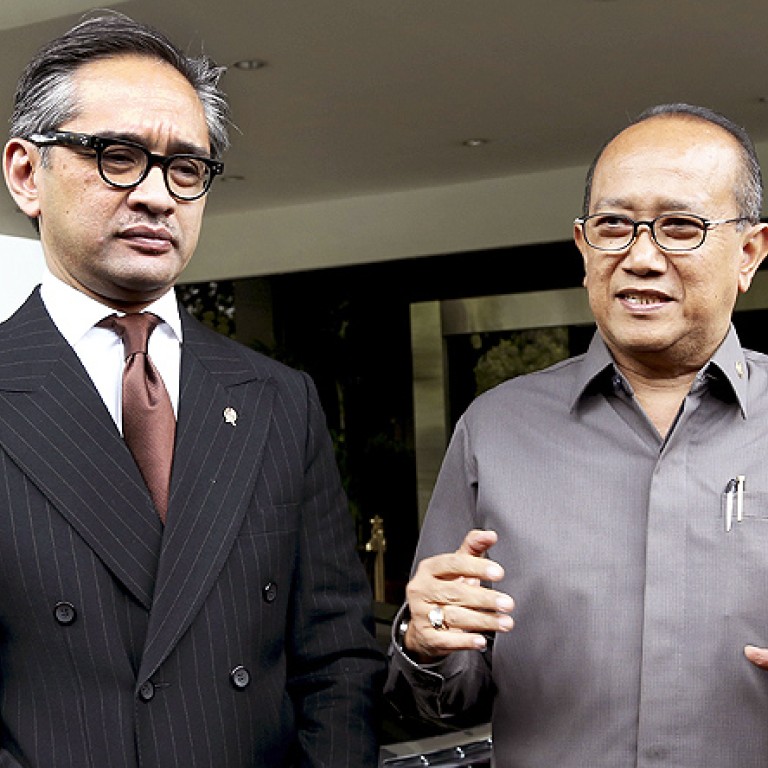
Indonesia suspends Australia people-smuggling co-operation
Indonesian president denounces Canberra’s 'cold war' behaviour following allegations spies tapped his phone
Indonesia said it was downgrading ties with Canberra over allegations its spies tapped the phone of the president, as the Australian leader on Wednesday again refused to apologise over the scandal.
The latest angry outburst came as the head of Indonesia’s intelligence agency said he had received assurances from Australian spy chiefs that no wiretapping would take place in Indonesia ever again.
For me personally, and for Indonesia, the wiretapping by Australia ... is difficult to comprehend
The spying scandal exploded this week, and has seen Jakarta recall its ambassador from Canberra and President Susilo Bambang Yudhoyono publicly lambast the Australian premier for showing a lack of remorse.
Indonesia had already said it would review co-operation with Canberra following the reports Australian spies tried to tap the president’s phone and those of his wife and ministers in 2009.
Late on Tuesday, Foreign Minister Marty Natalegawa went a step further, telling reporters: “We are downgrading Australia’s relations with us.”
“Like taps, we are closing off areas of co-operation one by one.”
“We will review Australia-Indonesia relations generally ... to make sure that it is not business as usual, not like it used to be,” he added.
He declined to go into detail, but a foreign ministry source said one step could be cutting the number of Indonesian diplomatic personnel in Canberra and asking Australia to do the same in Jakarta.
Indonesia and Australia have traditionally co-operated in many areas, including on anti-terrorism initiatives and on the sensitive issue of asylum-seekers.
Tensions had already risen dramatically since conservative Prime Minister Tony Abbott took power in September due to his hardline asylum-seeker policies and earlier spying allegations.
But the row over the alleged spying on the president, first reported in the Australian media and based on leaked documents from US intelligence fugitive Edward Snowden, has pushed relations to their lowest level for years.
As the downgrading of ties was announced, Indonesia’s ambassador to Australia, Nadjib Riphat Kesoema, held crisis talks on Wednesday with Yudhoyono, Natalegawa and the head of the country’s intelligence agency at the presidential palace in Jakarta.
As he arrived for the meeting, intelligence chief Marciano Norman told reporters he had received assurances from Australian spy chiefs.
“Indonesia’s intelligence agency has communicated directly with its Australian counterpart and they say that from now on, it will never happen again,” he said, referring to wiretapping.
In the past, Australian authorities have refused to comment on intelligence matters.
The Australian Broadcasting Corporation also said Yudhoyono met on Tuesday night with at least three government ministers who are key to Australia’s interests.
Despite the mounting crisis and demands from Jakarta for a public apology or clearer explanation of the spying allegations, Abbott once again refused to say sorry Wednesday.
“I do understand how personally hurtful these allegations have been, these reports have been, for him and his family,” he told parliament.
“I do note there have been allegations and even admissions in the past on this subject, people didn’t overreact then and I certainly don’t propose to overreact now.”
Abbott appeared to be referring to an admission by Jakarta’s former intelligence chief to similar spying operations by Indonesia in the past, reported in the Australian media Wednesday.
and the tabloid both cited comments from a 2004 television interview with Indonesia’s retiring intelligence chief Abdullah Mahmud Hendropriyono, in which he said all governments tapped each other’s communications.
He admitted that Jakarta had eavesdropped on the phone calls of Australian politicians, had tapped Australian civil and military communications and even bugged the Australian embassy in Jakarta during the East Timor crisis in 1999.
At the time, no apology was sought by then Australian prime minister John Howard.
The leaked documents, reported by the ABC and newspaper, showed that Australia’s electronic intelligence agency tracked Yudhoyono’s activity on his mobile phone for 15 days in August 2009, when Labor’s Kevin Rudd was prime minister.
At least one phone call was reportedly intercepted.
The list of tracking targets also included Yudhoyono’s wife Ani, Vice President Boediono – who was in Australia last week – former vice president Jusuf Kalla, the foreign affairs spokesman, the security minister and the information minister, the reports said.
